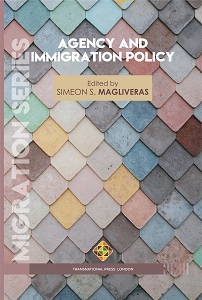Narratives of Trauma Across Generations of Pontic Greeks and Their Impact on National Identity
Narratives of Trauma Across Generations of Pontic Greeks and Their Impact on National Identity
Author(s): Georgia Lagoumitzi
Subject(s): Studies in violence and power, Migration Studies, Politics of History/Memory, Politics and Identity, Identity of Collectives
Published by: Transnational Press London
Keywords: Pontic Greek diaspora; sociology of generations; generation location; generation units; trauma; genocide narratives; identity;
Summary/Abstract: Karl Mannheim’s 1928 essay ‘The Problem of Generations’ introduced a unique perspective on the dynamic development of social relations, social knowledge and social action. In this essay, he maintained that simple generational separation performed by positivist demographers on the basis of simple biological facts was meaningless. Instead, he defined a generation in terms of distinct collective experiences of given age groups, which stamp those age groups with a permanent separate identity. These experiences, in turn, give a new meaning to both, individual (subjective) and historical (objective) time. Mannheim distinguished between the ‘generation location’, actual generations comprised of individuals bound together by a common destiny, and the ‘generation unit’, establishing in this way the dialectical relationship between history and subjective knowledge. The conceptualization of diaspora as a ‘narrative of displacement’ provides the opportunity to assess the impact of such traumatic experiences on the separate ‘generation units’ among Pontic Greeks. Sharing the experience of successive displacements from the Ottoman Empire to Russia, from Caucasus to Kazakhstan under the Stalinist regime, and finally from the ex-Soviet Union to Greece in the wake of the 1989 Revolutions, they constitute an ideal-typical group for the study of the way in which different generations perceive a common past and face new challenges. Moreover, we explore the mediating role of genocide narratives in the perception of trauma and suffering by different generation units and their impact on their diasporic identity. In doing so, we affirm Stuart Hall’s interpretation of “identities… [as] projects and practices, not properties. Finally, we assess the importance of diasporic memory for the nation.
Book: Agency and Immigration Policy
- Page Range: 91-103
- Page Count: 13
- Publication Year: 2020
- Language: English
- Content File-PDF

